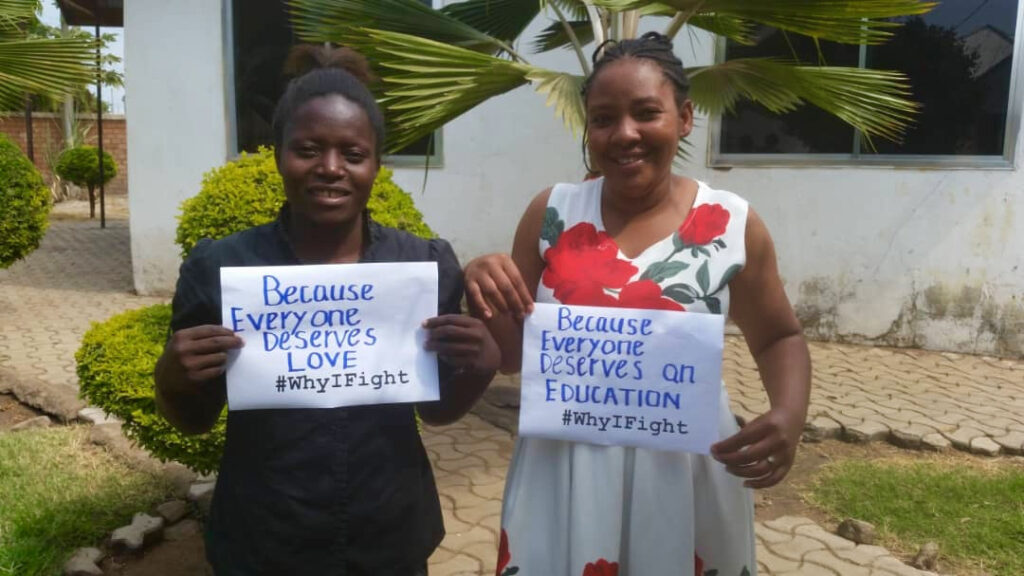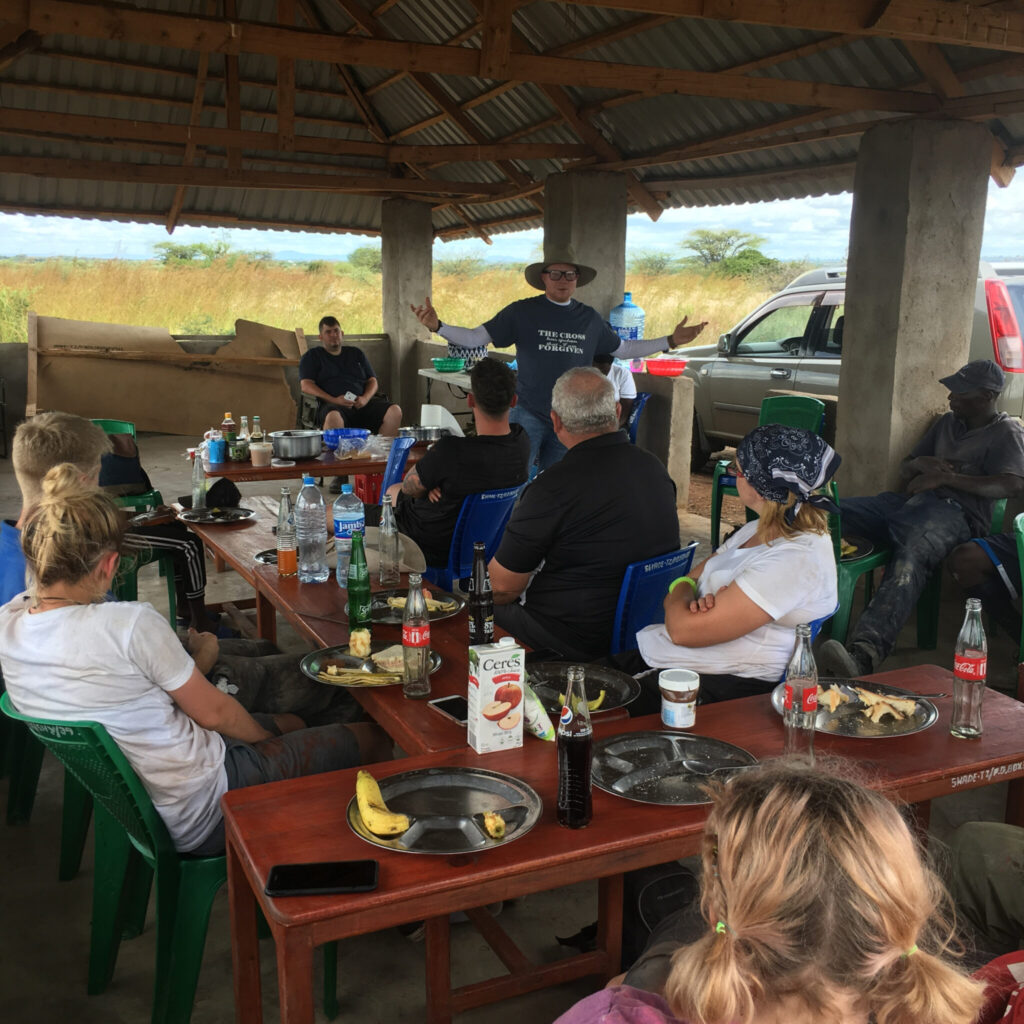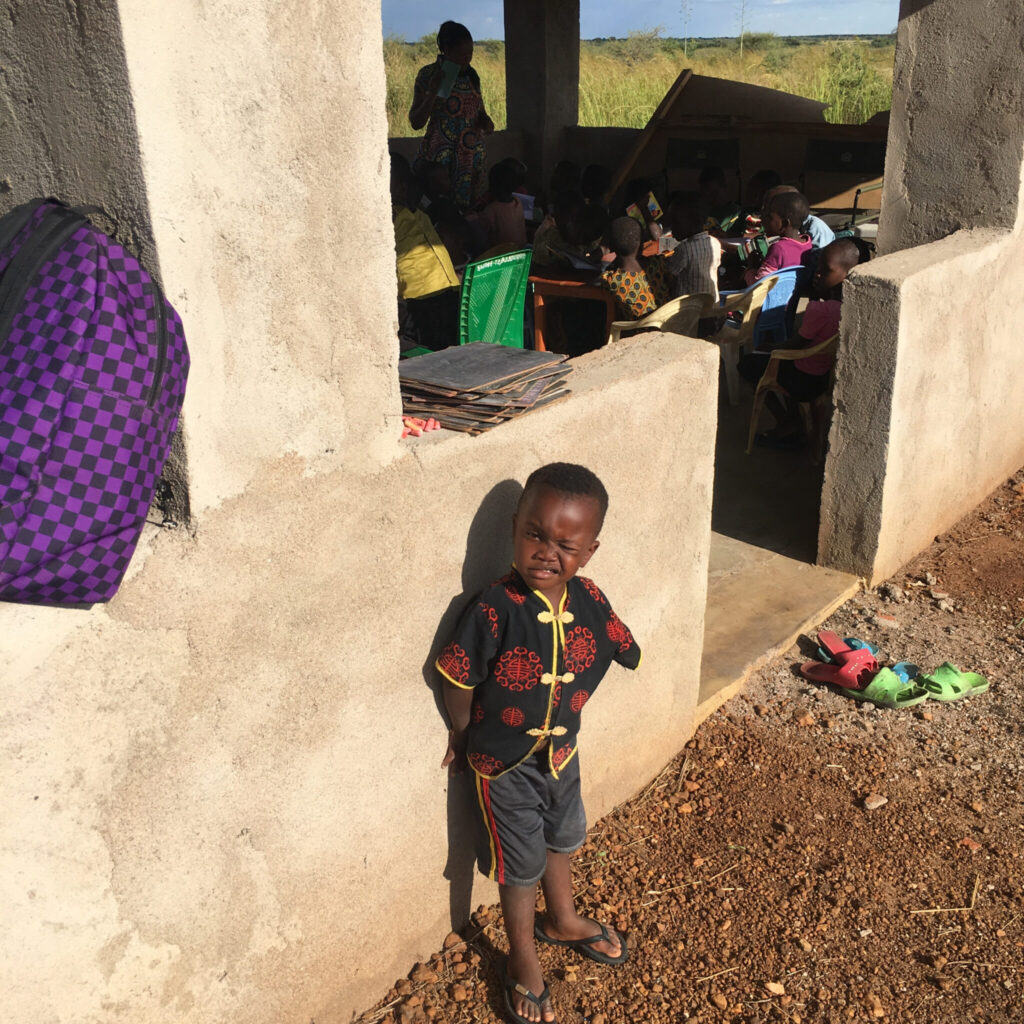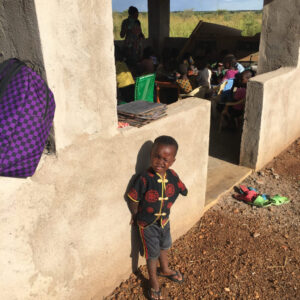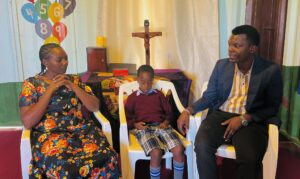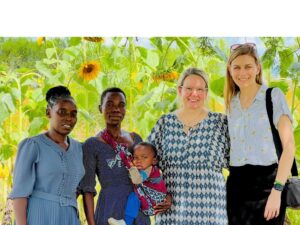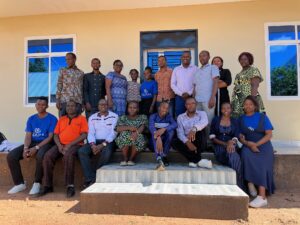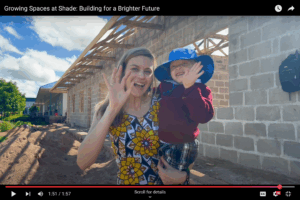The two of them slowly made their way across the dry field, heading my way: a young woman traditionally dressed with a little boy in tow. Their pace was dictated by the blazing afternoon sun, their faces partially shaded by draped, patterned cloth. They approached where I sat under the cover of a concrete gazebo, which was positioned in the middle of the expanse. As they drew nearer, I rummaged through my mind for the appropriate greeting to bring. On the one hand, the greeting for an elder seemed appropriate, seeing a mother with child. And yet she looked much like a child herself. I decided to play it safe.
“Shikamoo,” I said, trying to evoke warmth amidst my busyness of preparing and overdue lunch for 20 workers.
A momentary look of bewilderment crossed her face before a smile broke forth. It wasn’t every day that you ran into a foreigner in the village, let alone one that knew the language.
The little boy picked at the frayed hem of his shirt, eyes fixed on me with a bit more concern than his mother. Bending to his level, I chanced another smile and Swahili phrase in an attempt to put him at ease. “What’s your name?” I asked, but no audible response emerged.
“Richard,” the woman laughed. “His name is Richard.”
I straightened to meet her eyes again. “You must be Mama Richard then.” Her head bobbed in consent.
The conversation had been going well so far, but I knew it would be short-lived. Mama Richard had come to drop her son off for after-school tutoring, but I would have to break it to her that the program wouldn’t be starting until 3:30. Not to mention that I still had about 25 eggs to peel to make the egg salad sandwiches consist of more than just white bread and mayo.
I let out my best version of a Swahili apology and told her of the time mix-up. Unphased, she asked if she could wait. “Wait?” I repeated, emphasizing again that the program was three hours from its start.
“We’ve come from very far away,” she explained. “We walked from another village just to be here. Can we wait?” She implored yet again.
I agreed, pulling up a plastic chair and handing Richard a packet of peanuts from the pile of lunch snacks. I turned back to my pile of eggs, burning like coals from the boiling water, retaining the African heat. My body seemed to be doing the same, the warmth and stress of a time crunch creating a damp band along my hairline.
I turned to Mama Richard with an idea and a swollen watermelon. “Do you want work?” I ventured, knowing that she’d sacrificed most of her day to make sure that Richard could come to learn. She reached for my offering and the table in front of her quickly filled with pineapples and oranges and passionfruit to prepare as well. We sat and worked in contented silence, Richard occupied by patches of dirt and sticks and the occasional lizard.
After lunch was prepared, the team had eaten, and the food had been cleared, I instructed my new helper to wash dishes at the nearby house as a final task. Finally, 3:30 would be nearing.
Knowing that my work was temporarily complete, I joined the group in a plastic chair and invited our ministry’s Tanzanian director to take my place in front of the group. He rose.
“My name is John and I am 25 years old. I am a person with albinism. It was not easy growing up with albinism especially in my country, Tanzania, where people with albinism, or PWA, are stigmatized, isolated, and are in danger of being killed because of the bad local beliefs towards the skin color,” he opened with.
The group settled in, ready to hear a story that would be inevitably much different from their own. Most of them had come from the UK to do a volunteer building project using shipping containers, while others hailed from North America and East African nations. John continued.
“There is a great need to help Tanzanian societies understand this human condition. One way we do this is through seminars we call Understanding Albinism. These seminars not only educate the public about understanding the condition of albinism and other challenges that PWA face, but they promote the main components to enact change: giving love along with education.”
He went on to explain the genetic condition of albinism, the specific struggles faced by people like himself, and finally circled back around to emphasize what he’d opened with and what he believed to be the key.
First, love.
John had been given the advantage of growing up in a family that loved him. Unlike most stories of children with albinism in Tanzania, he was treated just like his siblings that had pigment in their skin, was reminded of his value, and above all else, was introduced to the God who is Love. Knowing that he was loved by his Heavenly Father gave him the identity as a son, albinism aside.
What will transform the persecuted, fearful, lonely person with albinism? Love.
What will transform the hearts and the minds towards valuing all people? Love.
What will transform the broken world into a place of hope? Love.
I began to soak in this truth with each pronouncement of the value of love. It was when I had realized the deep love of the Father for me that I had been changed. It was when I realized that His love was all that I needed, what I was created for, that I gave everything in this world away and moved to Tanzania. It was because of the deep, impacting power of love in my life that I sat here today and was reminded again what it really is all about.
The key for me was love. The key for people with albinism is love.
But what does love look like?
Then John continued. “The number one factor that affects PWA in succeeding in life is a quality education.”
Education gives you a chance. It gives you the tools, open doors, creates opportunities and new trajectories. Love looks like education.
As he continued to speak on his own story and the educational opportunities he’d been given, my thoughts drifted back to Mama Richard. Love and education. She wasn’t worried about the missed day of work, the long walk in the suffocating heat, or having to wait for hours while entertaining the broken conversation with a mzungu.
Mama Richard had gotten it all completely right. She knew what would change her family through her son’s trajectory. Love and education.
I shook my head and smiled. Here I was, the leader of an international organization, annoyed at a pile of eggs, the stress of deadlines and building projects rolling off of me like the sweat on my brow, and God gently reminded me of the simplicity of truth.
Sometimes we overcomplicate it, but an afternoon Mama Richard reminded me how simple transformation can be. And even when we lose sight of why we’re doing what we do or what it’s all about, God honors our simple act of showing up. Showing up after a long walk for tutoring. Showing up to erect our future school. Showing up to peel eggs and offer a day’s work for a single mama.
And as we seek Him in the midst of it, as we love and as we educate, He will bring about transformation.
